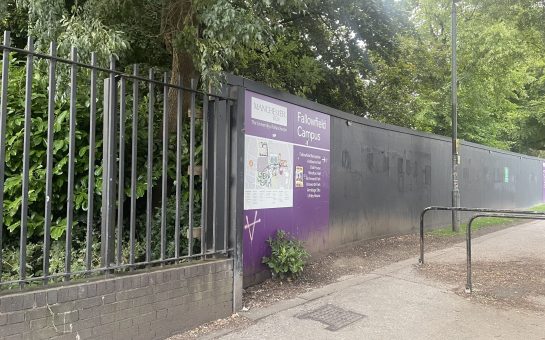The second phase of Manchester’s new Bee Network Cycle Hire is a week old, running ahead of a proposed full launch next summer.
Mancunian Matters spent an afternoon along its route to check in with users and non-users.
Delivering greater levels of public access to bikes across Greater Manchester was part of ‘Made to Move’, a 2018 plan written by Chris Boardman MBE, then in his role as Manchester’s Cycling and Walking Commissioner.
The 15-step plan had a goal to double and then double again cycling in Greater Manchester as well as shift the culture in the city towards cycling and walking as a less risky option.
In an article in The Guardian, Graeme Sherriff, a researcher in healthy and active cities at the University of Salford, said that the success of the Bee Bikes will ultimately be down to whether Mancunians like to ride them – this could depend on safety as well as the roadworthiness of the machines.
The route runs between Oxford Road in the city centre and Armitage Sports Centre in Fallowfield, offering kerbed segregation for most of its length.
The scheme uses robust, tamper-proof bicycles activated, locked and unlocked via an app on the rider’s smartphone.
The machines are intended to be docked in specially built stations, or very close to them, otherwise owners can expect a fine.
An unrelated hiring facility – Mobike – was dropped in 2018 as its dockless machines were vandalised or stolen.
Stefan Neilson, a field operative from Beryl, the company running the day-to-day operations here, was scanning the bicycles at a site opposite the MMU Faculty of Science & Engineering on Oxford Road.
He said they had only seen seven or eight units outside the area of the docking stations since Monday.
Jonathan Owen, who works at the University of Manchester’s main library, was securing his bicycle just outside after picking it up at the top of Oxford Road.
The 31-year-old usually commutes on his own bike and said of his temporary hire, “I thought, actually, it’s fairly heavy. I think that’s not a bad thing as it means they’re less likely to end up in the canal.
“I was thinking, it’s a bit more robust, so I think it’s fine, it’s very similar to the ones you get in London.”
Owen lives in Stretford and wanted to try out the scheme after hearing about it at the GM Green Summit last month.
He’d left his own bike at home and caught the tram into town before collecting his ride.
Design Engineering student Louis Willott also left his own machine at home in Fallowfield so decided to collect a hire bike instead of taking the bus back from Manchester Metropolitan University.
He couldn’t specifically remember seeing any advertising on campus but easily identified the stations and bikes at the pavement edge.
A 17-year-old student at The University of Manchester swapped his usual bus ride to take him on a five minute journey from just outside the Aquatics Centre.
Oluwadamiola Akinyele is reading Mechatronic Engineering, lives in Fallowfield and used the scheme twice this week and will continue to use it as he “really likes pedalling”.
He uses a car too, but is thinking of getting his own pedal cycle next year.
Another student who does not have his own bike in Manchester, and his friend, each hopped a hired one outside Owens Park, close to the most southerly part of this phase.
19-year-old Environmental Science student Kieran Armstrong said they were planning to race a number 43 bus into town.
He will continue to use the bus to The University of Manchester having paid for a pass in late September but may consider the scheme in the summer months.
The annual bus pass costs £280 and the pedalled version of the bike is 50p to unlock each ride and 5p per minute after that.
The station Armstrong and his pal collected their bikes from passes one of the main bus stops into the city centre and after just missing another number 43, two students waiting there said that they didn’t know that there was a hire scheme available.
People at other bus stops in sight of docking stations either thought it was too cold in winter to consider using the scheme or said they lived too far away from the current route to try it.
The late afternoon temperature was seven degrees Celsius and doubtless the longer nights will deter prospective users.
Another Beryl employee – Tom Carroll – was fixing a metal kickstand attached to one of the bikes at this docking station. He said the electric versions of the machines – around 20% of the current inventory – have batteries which they replace on-site, rather than taking away for charging.
The scheme plans eventually to have a perimeter around Pendleton, Mile Platting, Rusholme, Fallowfield, Chorlton, Trafford and Salford Quays.
It is expected to connect to new segregated cycle lanes being installed along routes in those areas.
The first phase of the trial ran at Salford University.
Manchester already has the most cycling commuters per capita in the UK, according to data from Strava, a leading fitness tracking app.
The device has GPS tracked more than 17 million cycle commutes in the UK since 2019.



